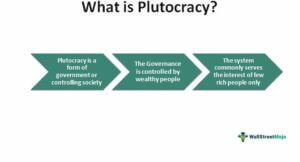

Why? Manchin, personally, makes roughly half a million dollars a year in dividends from coal company stock. According to the latest Gallup Poll, 73% of citizens are in favor of clean energy. Plutocracy is a system of rule by the wealthy, directly or indirectly. They represent Big Pharma, not their constituents. All are opposed, along with many Republicans, to having Medicare negotiate prices with Big Pharma.

Who are the plutocrats How about this definition The top 0.01, 1 and 10 of rich own 10, 20 and 40 of national wealth respectively, a really sharp peak.

Kurt Schrader (D-OR) received $433,178 (Kaiser Health News). Answer (1 of 7): They are quite similar and both are against democracy. Scott Peters (D-CA) received $541,400 since 2013 and Rep. Robert Menendez (D-CA) received $491,800. Kyrsten Sinema (D-AZ) received $258,236 from the pharmaceutical industry and Sen. How do these donations correlate with congressional votes?Īlthough 88% of citizens favor allowing the federal government to negotiate for lower prices on medications according to a Kaiser Family Foundation poll, this benefit was eliminated from Biden’s budget proposal. Indirectly, it consists of regulatory frameworks and programs designed to benefit the wealthy (e.g., Trump’s tax cut).Īccording to, it costs over $9.8 million to get elected to the Senate and over $2.3 million to get elected to the House, money that comes mostly from wealthy individuals, corporations, and PACs. Is the same fate in store for America 18. Many of their votes seem to “follow the money” which leads to a form of government called an oligarchy or plutocracy which exists when a government is controlled by the wealthy, either directly or indirectly. A financial plutocracy contributed to Britains demise as a global power. If you follow the votes of those who “represent” us you will see an interesting pattern. The problem is that, in our current government, we, the people, the common people, are not truly represented. On the surface, it appears that we may be a democratic republic. Since we elect those who represent us, we can be considered a “democratic republic.” So, when Tim Walberg stated that he did not believe in democracy but, “I believe in a republic,” it is noteworthy that he did not say “democratic republic.” He shows that Paretos optic was based much more on the psychological origins of political processes than on material considerations. Femia Reference Femia 2006 provides the best overview and critique of Mosca and especially Pareto. Consequently, the leaders need not be elected, which we see in many autocratic “republics” such as the People’s Republic of China and Cuba. 5 A plutocracy is an oligarchy of the wealthy, which to Aristotle and to us is a redundancy. The key concept to the word republic is that the leader of the government (or state) is not a hereditary monarch but, rather, someone who is elected or installed. Perhaps we are a republic, which is a form of government that relies on the representation of the people rather than people representing themselves as in a pure democracy.


 0 kommentar(er)
0 kommentar(er)
